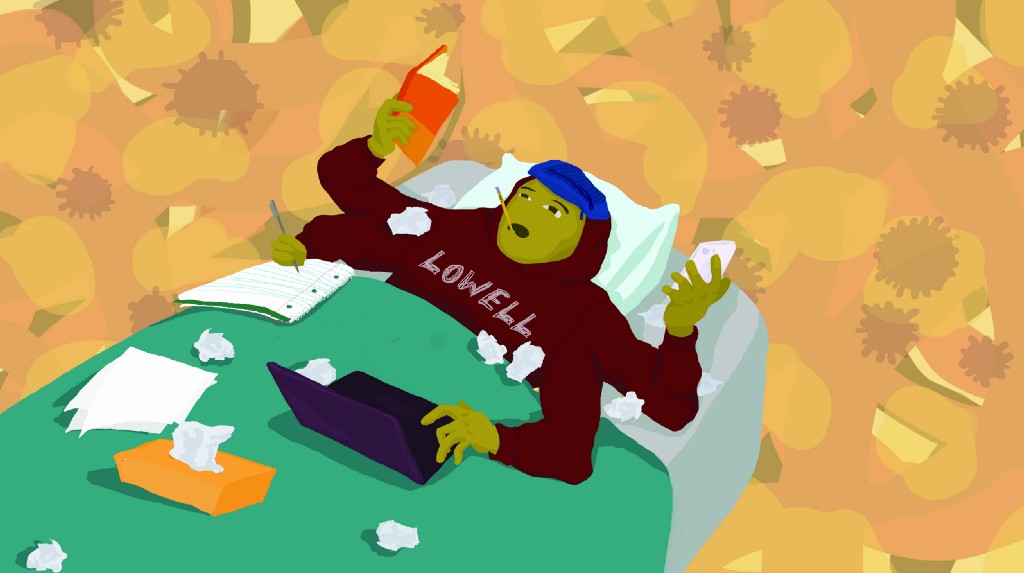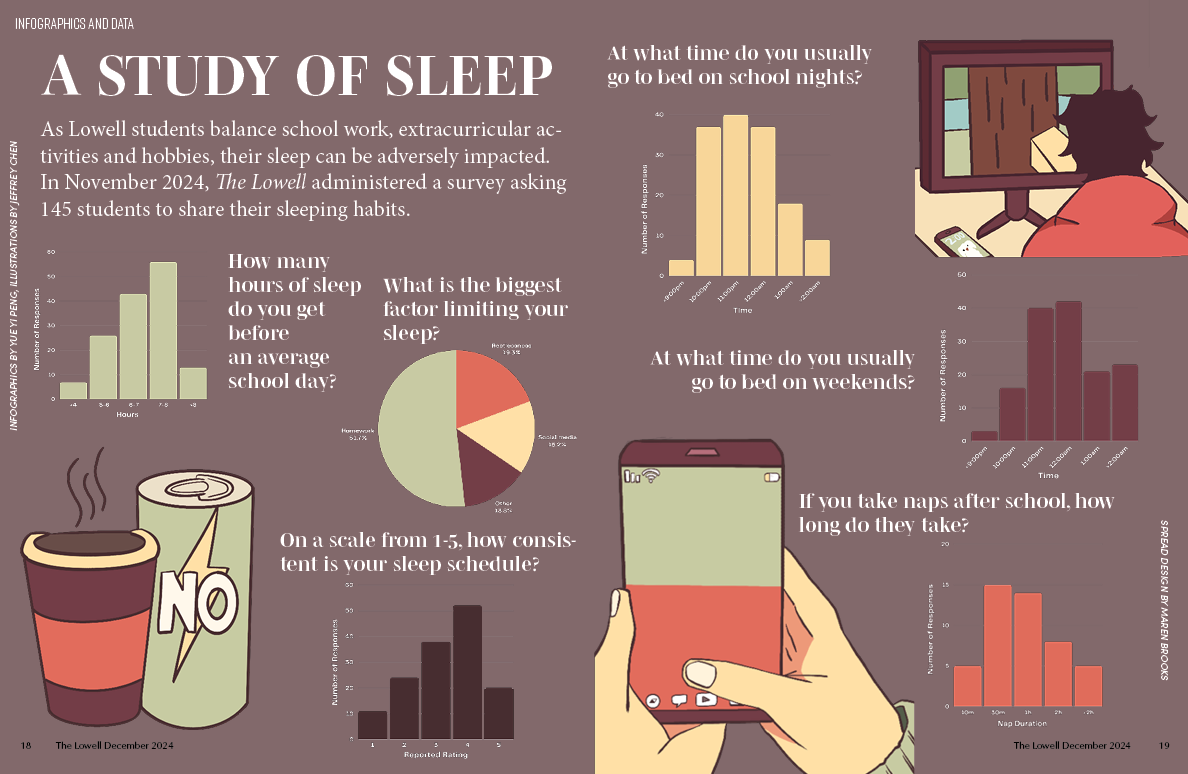By Olivia Sohn

Most Lowell students never miss school unless they have to, even if they are sick. But over these last few weeks, more Lowell students than usual seem to have been missing from school.
The Attendance Office has noticed an influx of excuse notes. “There are a lot of notes, so it must mean that kids are getting sick,” said Constance Chang-Wong, an Attendance Office representative.
Students remaining at school may be feeling the urge to run for cover when they walk through the halls and notice the prominent sneezing, sniffling, coughing and wheezing. These symptoms all point to this year’s influenza (flu) strain, which is much worse than usual.
How it spreads
The flu is currently categorized as “widespread” in all states except Hawaii, according to the Centers for Disease Control and Prevention (CDC). This year’s flu originated in Louisiana and Mississippi, traveled west to California, traveled up the coast and to the rest of the United States, and is now affecting six percent of the U.S. population. Normally, the Flu travels at a slower pace across the country, hitting different parts of the country at the different times.
The Strain
This year, a subtype of Influenza A named H3N2 is the dominant strain being contracted. According to the CDC, 78 percent of the cases tested this year were of the H3N2 strain. It is known for being deadly for the elderly and individuals with weaker health.
The Vaccine
The H3N2 portion of this year’s flu shot is a bad match for the virus currently circulating, with an estimate of about 10 percent effectiveness.
Due to the H3N2 virus’ tendency to mutate quickly, it is difficult to make effective vaccines to combat it. Furthermore, egg-adapted changes (genetic changes that occur in the eggs where the vaccines are produced) decrease the vaccine’s effectiveness. According to the CDC, egg-adapted changes to the H3N2 virus are the most likely out of all the strains to make the vaccine less effective. This makes the H3N2 protection in flu shots more unpredictable and generally less effective.
How to Avoid Getting Sick
There are ways to prevent contracting the flu. In a school setting, it’s important to clean and disinfect common surfaces in order to stop the spread of illness. In order to avoid getting sick, the CDC advises people to avoid contact with those who have the flu, wash their hands frequently, avoid touching their eyes and mouth, and make an effort to stay healthy. They advise people who have to flu to cover their noses and mouths when coughing and sneezing, as well as staying home when they’re sick.
Based on CDC recommendations, here’s a public service announcement for all you Lowell students: If you’re sick, stay home. You can take that test next week.











